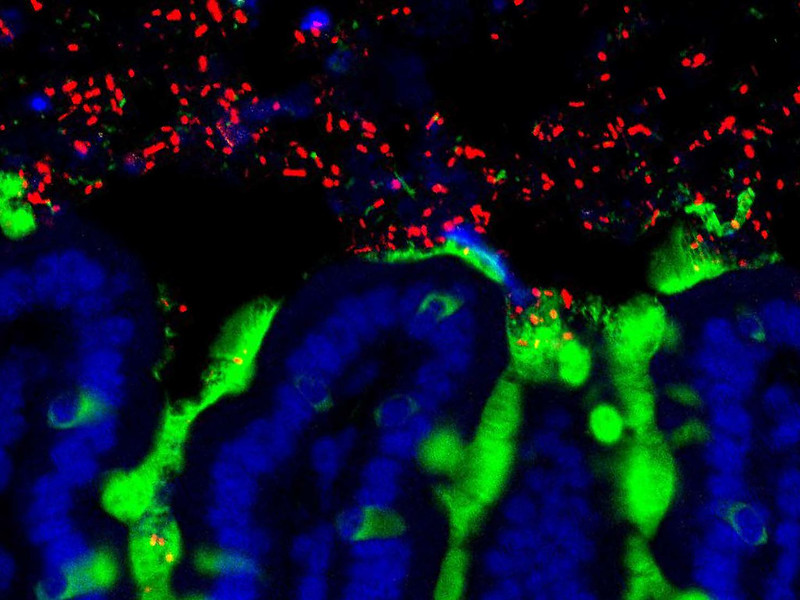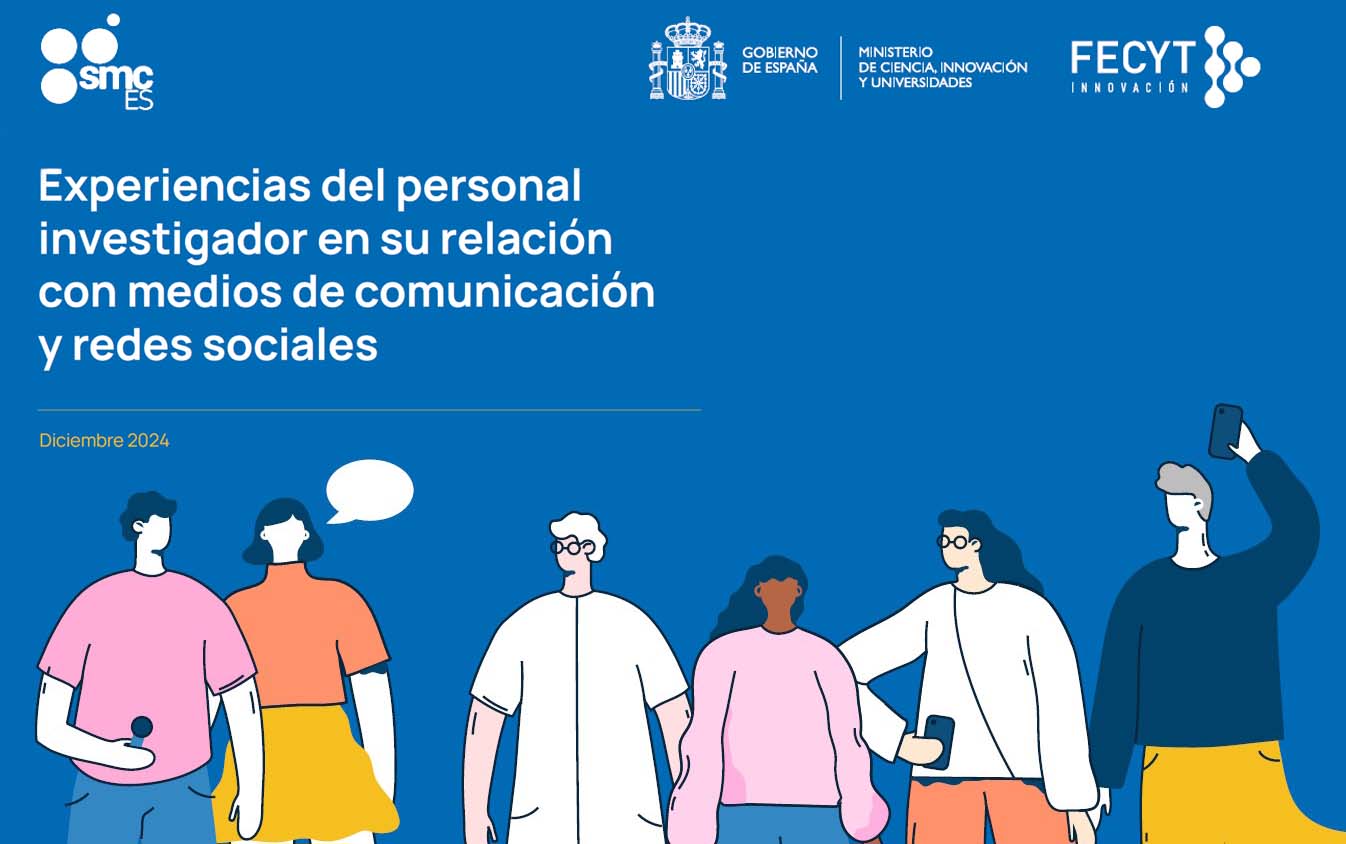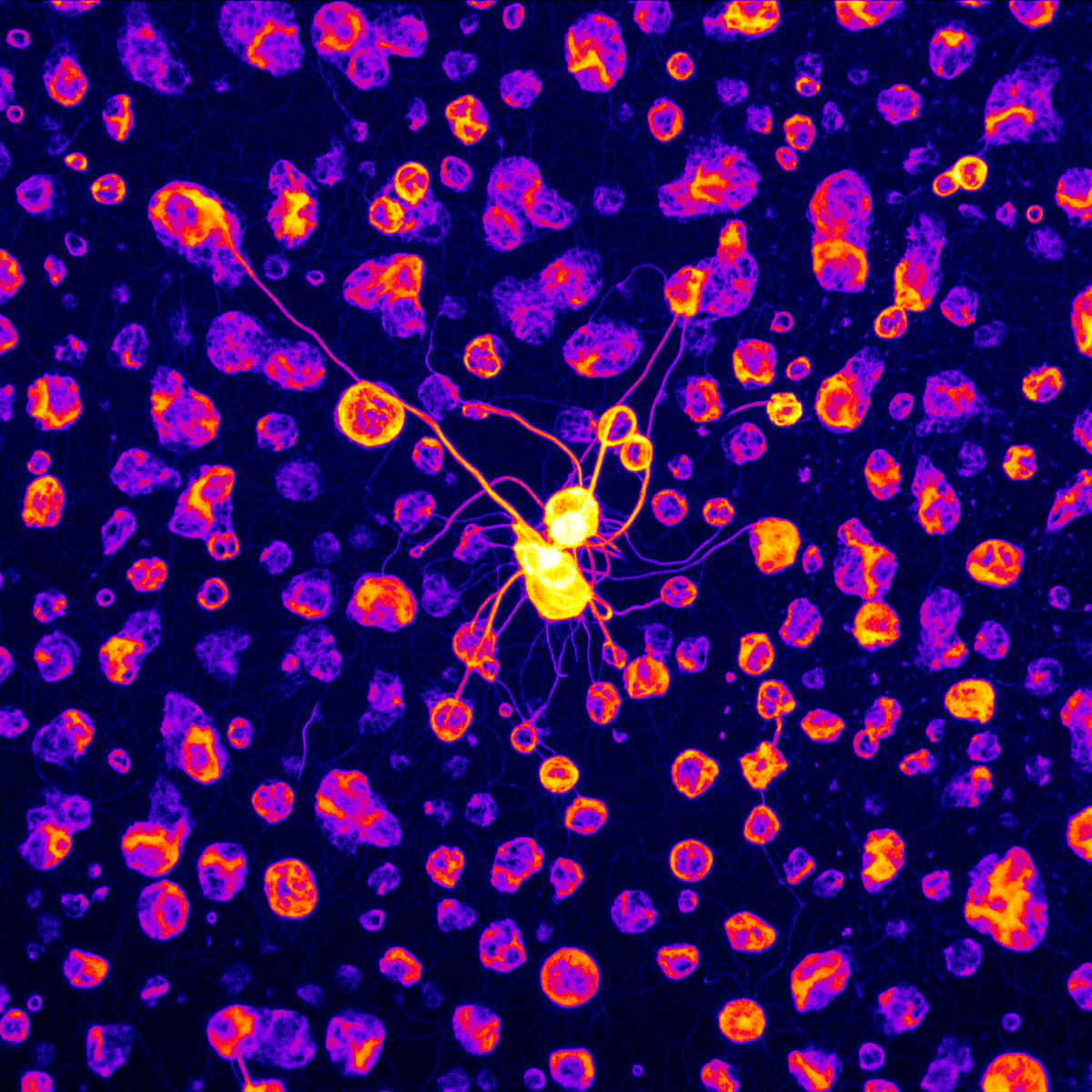Microbiota of pregnant mice influences the stem cells of their offspring
Research in mice shows that the gut microbiota of pregnant mice influences the development of stem cells in their offspring. Changes in the bacterium Akkermansia muciniphila in the maternal microbiota alter the proliferation of intestinal and neural cells in the offspring, according to the study published in Cell Stem Cell.









